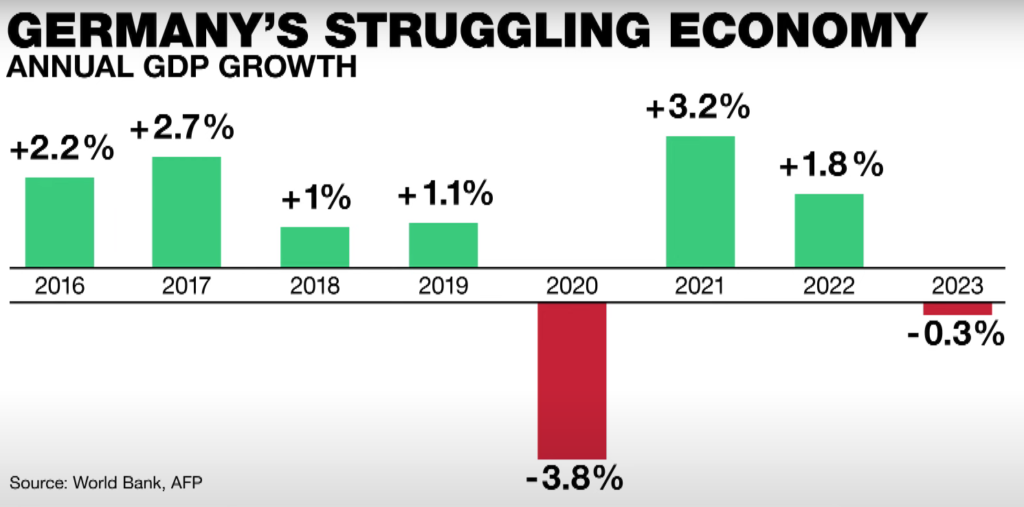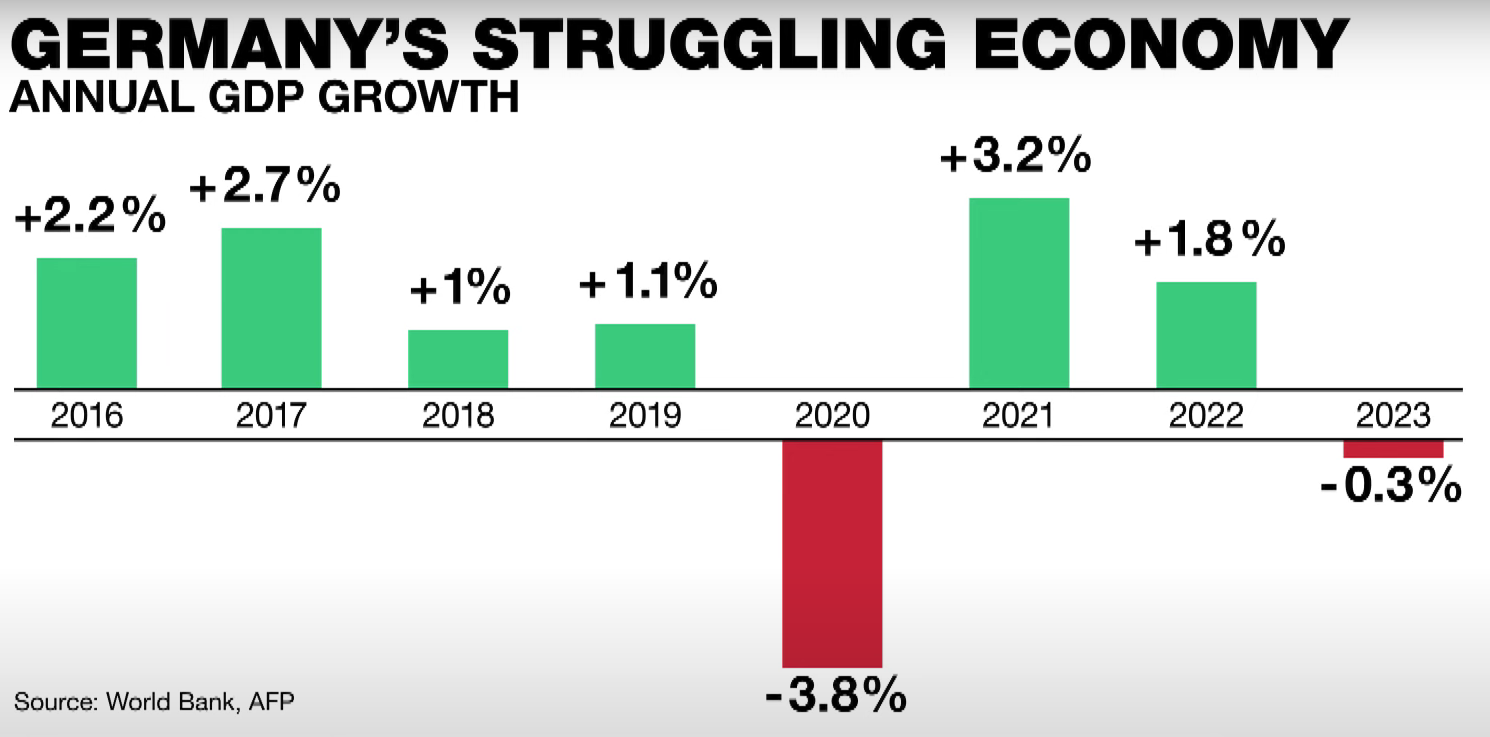Germany’s economy is showing early signs of recovery, prompting the government to slightly raise its growth forecast for 2024. After a challenging year, marked by a contraction of 0.3% in its gross domestic product (GDP), Germany is now poised for a modest but positive turnaround. The German government has revised its growth outlook, predicting a 0.3% expansion in 2024, up from the previous forecast of 0.2%.
Signs of Recovery in Europe’s Largest Economy
Germany, often regarded as the economic powerhouse of Europe, has faced significant challenges over the past year. The nation was hit hard by soaring energy prices, inflation, and the aftermath of Russia’s invasion of Ukraine, which disrupted global trade and caused a sharp decline in industrial output. However, the recent decline in energy prices, particularly gas and electricity, has brought some much-needed relief to German industries, which are now beginning to show signs of recovery.
Robert Habeck, Germany’s economy minister, expressed cautious optimism about the country’s economic prospects. “We are seeing increasing signs that the economy is gradually recovering and the outlook is brightening,” he said. Habeck highlighted that industrial production, especially in energy-intensive sectors, has been on the rise since the beginning of the year.
Factors Contributing to the Positive Outlook
Several factors are contributing to the improved economic outlook for Germany. Lower inflation, the potential for reduced interest rates later in the year, and rising wages are all expected to boost consumer spending power. The German government forecasts that inflation will average 2.4% in 2024, down significantly from 5.9% in 2023. This decline in inflation is likely to provide a much-needed boost to household spending, as consumers find themselves with more disposable income.
The labor market remains stable, and stronger exports are also expected to contribute to economic growth. Habeck pointed out that the combination of these factors is creating a more favorable environment for both industry and consumers. “Finally, people have more money in their pockets and will, as things stand, spend this money,” Habeck said, noting the increase in purchasing power.

Business Confidence on the Rise
The positive outlook is echoed by Germany’s business community. The Ifo institute, one of Germany’s leading economic think-tanks, recently reported a rise in business confidence to its highest level in almost a year. The Ifo business climate index, based on a survey of 9,000 companies, increased by 1.5 points to 89.4, surpassing economists’ expectations. This improvement in sentiment is particularly strong in the services sector, where companies are becoming more optimistic about their current business conditions and future prospects.
Clemens Fuest, president of the Ifo institute, noted that companies were more satisfied with their current situation and that their expectations for the future had brightened. This boost in business confidence is a positive sign for the overall economy, suggesting that the recovery is gaining momentum.
Challenges Remain
Despite the improved outlook, Germany still faces significant challenges. Economy Minister Habeck cautioned that the country needs to accelerate its efforts on structural reforms to maintain and enhance its competitiveness. He emphasized the need to reduce bureaucracy, reform European capital markets, and address a critical skills shortage that is affecting various industries.
One of the biggest short-term challenges, according to Habeck, is the reluctance of many industries to invest in new capital goods and the transformation needed to adapt to a changing global landscape. The construction and machine-building industries, in particular, have been slow to make the necessary investments, which could delay a more robust economic upturn.
Looking Ahead
While Germany’s economic outlook is improving, the path to full recovery remains uncertain. The slight upward revision in the growth forecast is a positive development, but the challenges ahead cannot be ignored. Structural reforms, investment in key industries, and continued efforts to stabilize the economy will be crucial in ensuring that Germany’s recovery is sustainable in the long term.
As Europe’s largest economy begins to recover from a difficult period, the focus will be on maintaining this momentum and addressing the underlying issues that have hindered growth. If these challenges can be met, Germany may well find itself on a stronger footing in the years to come.





